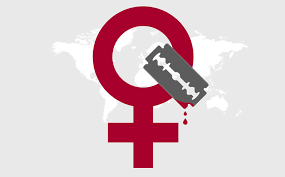46th Ordinary Session Of The African Commission on Human and Peoples’ Rights, November 11-25 2009, Banjul, The Gambia
Statement By IHRDA and Forum des Organisations Nationales des Droits de l’Homme (Fonadh)
The Institute for Human Rights and Development in Africa (IHRDA) and the Forum des organisations nationales des droits de l’homme (FONADH) welcome the decision of the Council of Ministers of the government of Mauritania to reintegrate into the civil service 144 summarily dismissed civil servants, victims of the mass expulsions of 1989. This decision, taken on Thursday October 15 2009, also resolved[1], to complete an exhaustive survey by the end of 2009 of all other civil servants who were unduly dismissed and expelled and either reinstate them or offer due compensation for those unwilling to rejoin the service or are past the age of retirement.
The Mauritanian government’s decision marks an important step forward in the realisation of the will of the Mauritanian people for a complete national reconciliation through restitutive justice for victims of the 1989 serious and massive violations of human rights authored by the state.
It also marks the beginning of implementation of recommendation No. 4 of the African Commission on Human and Peoples’ Rights’ decision 54/91, 61/91, 98/93, 164/97 to 196/97, 210/98 Malawi African Association and others / Mauritania which demands of Mauritania, “To reinstate the rights due to the unduly dismissed and/or forcibly retired workers, with all legal consequences appertaining thereto”.
IHRDA and FONADH welcome the overall progress realised by the government of Mauritania in the implementation of the African Commission decision and finding lasting solutions to the question of restitutive justice in Mauritania. Indeed, Mauritania has shown itself to be an example to African states on implementation of African Commission decisions in several ways since 2007:
• Public acceptance of state culpability, apology and commitment to restitutive justice by the then President Sidi Cheikh Ould Abdellahi;
• Holding open public consultations with its citizens on how to fulfil the commitment to restore justice and respect for human rights;
• Passing law no. 2007-048 criminalising slavery and its analogous practices, thus fulfilling the demands of recommendation no. 6 of the African Commission decision;
• Signing the Tripartite Agreement with Senegal and the UNHCR for the voluntary repatriation of its expelled citizens and setting up of specialised government agencies to support the repatriation process as per recommendation no.2 of the African Commission decision;
• This recent government decision to reinstate sacked civil servants.
While celebrating the exemplary strides of Mauritania towards justice and full implementation of the African Commission decision, IHRDA and FONADH, having undertaken regular monitoring missions together with their partners, note that there is still much to be done for the voluntary return to fulfil the requirements for a dignified repatriation.
Reissuance of citizenship and other civil status documents is still unacceptably slow. With a few exceptions, the Mauritanian government has not effected the restitution of land confiscated during the expulsions and redistributed to local communities or individual farmers. In some areas such as Djoly, Fass, the poor pace of land restitution has brought communities close to open conflict. It is imperative that the central government intervene to hasten slow local government procedures and ensure that once self dependent farmers do not continue to live in dependency in the repatriation sites.
IHRDA and FONADH reiterate that the reissuance of citizenship documents, restitution of confiscated property and reintegration of unduly dismissed or forcibly retired civil servants as well as compensation for the tortured and executed or their beneficiaries are indispensable elements of a dignified return for these Mauritanian citizens. Living conditions of returnees in the repatriation sites are also unacceptable with poor access to water and sanitation, schools and health facilities.
Moreover, it should not be forgotten that a similar repatriation process and restitution is necessary for those Mauritanian citizens still living in exile in Mali. IHRDA and FONADH urge the government of Mauritania to conclude negotiations, sign and ratify a similar tripartite agreement with Mali and the UNHCR, and to as soon as possible begin the repatriation of its citizens in Mali.
[1.] According to the communiqué issued by the Agence mauritanienne d’information





